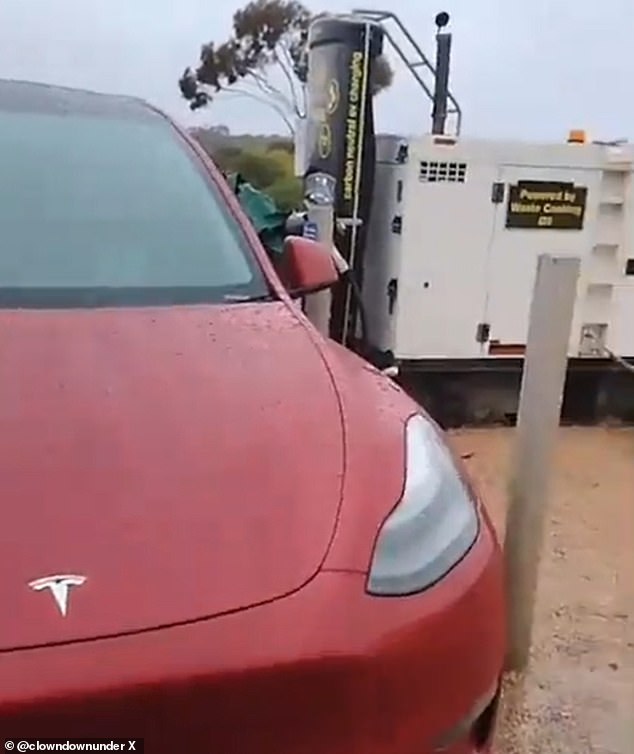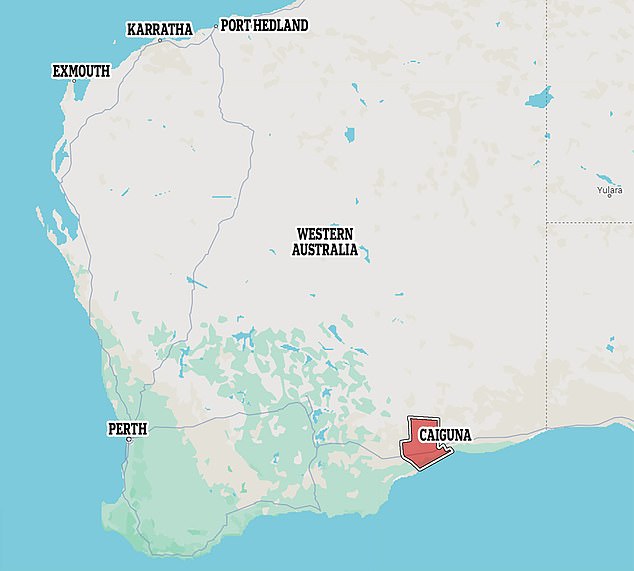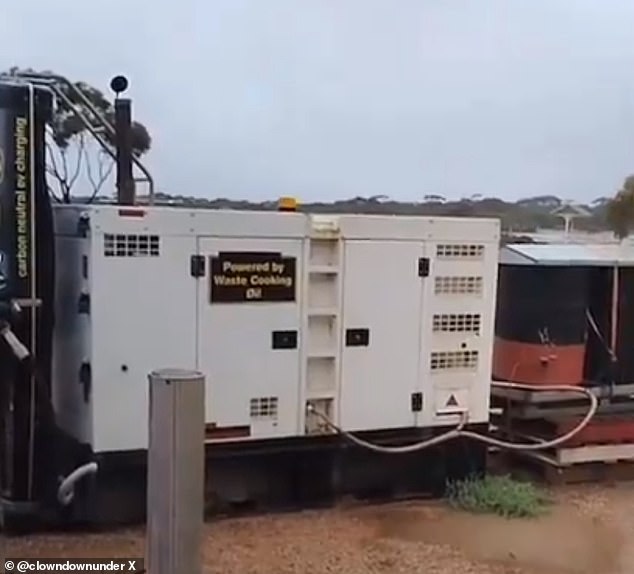Outrage as Australian motorist sees electric vehicle being charged by 'DIESEL' generator – but all is not as it seems as video sparks fierce 'greenwashing' debate
A motorist is outraged after seeing an electric vehicle charging at a charging station powered by a 'diesel' generator in remote Australia.
The woman spotted the Tesla parked at a charging station in Caiguna, about 1,000 km east of Perth, in Western Australia.
Footage shared on social media platform X on Friday showed the station was connected to a generator, prompting an angry response from the woman.
“So we arrived in Caiguna and we have an electric car powered by a diesel engine that runs on diesel, which is very green,” she said.
Eagle-eyed social media users were quick to point out that the generator displayed a sign that read: “Powered by waste oil.”
The crowdfunded 50 kW DC charger runs not on diesel but on 'biofuel' – an alternative energy source that has divided some experts over its cleanliness.
Social media users argued that using biofuels negates the benefits of driving an electric vehicle – with some calling it a form of 'greenwashing'.

This photo of a Tesla being charged by what appears to be a diesel generator has sparked much scorn online


The Caiguna charging station was the brainchild of engineer Jon Edwards, who convinced the station's operators to install the charger, which has been in use since early 2022.
Greenwashing is a term used to describe a company that has misled consumers about the environmental friendliness of its products.
“Powered by used cooking oil?” wrote one social media user.
“You can't run a typical diesel engine on used cooking oil; does it need to be refined and provided with additives?
'I wonder where that happens and whether the transport of that frying oil is efficient compared to the diesel that is already there?'
Another added: 'Where do you think the power is generated when you charge at locations in the city? Coal, but when you say “how very green”, get off your high electric horse and understand that it is not green at all because you are driving an electric car.'
Others felt it was necessary for the charging stations to operate on this type of fuel for the time being.
“I would dare say we are going through the transition phase,” one person wrote.
“Unfortunately it doesn't make much sense, it looks a bit strange, but it's part of the process and in the long term these generators will be replaced by large batteries, closing the technology loop.”
The Caiguna charging station was the brainchild of engineer Jon Edwards, who convinced the station operators to install the charger, which has been in use since early 2022.
“This biofuel unit would be one of the most remote fast-charging stations in Australia and indeed the world,” Edwards told Reuters.
The oil-to-fuel generator comes from the Roadhouse fryers and would otherwise be thrown away.


The Caiguna Roadhouse generator runs on cooking oil that would otherwise be thrown away
The Caiguna stop is at the eastern end of a 146.6km straight stretch of the Eyre Highway and it takes about an hour and a half to fully charge an electric vehicle to travel that stretch, depending on the size of the car battery.
EV owners using AC chargers running on roadhouse diesel generators can take six to 10 hours to fully charge a battery.
Even though the Caiguna generator runs on oil that would otherwise be thrown away, it may still not be greener than using fossil fuels.
Some scientists claim that biofuels, i.e. energy derived from animals or plants, emit as much or even more CO2 than fossil fuels.
A report shows that biofuels made from food crops lead to more emissions than those produced by fossil fuels.
The 2010 report from Britain's Royal Academy of Engineering looked at 250 studies on the impact of biofuels and warned that clean biofuels are still some way off.
The most commonly used types of biodiesel such as palm oil, soy, rapeseed and sunflowers were all more polluting than diesel.
It is generally accepted that biofuels have less or less negative effects on the environment compared to fossil fuels.
Social media users were outraged after images of the charging station were shared on social media.
